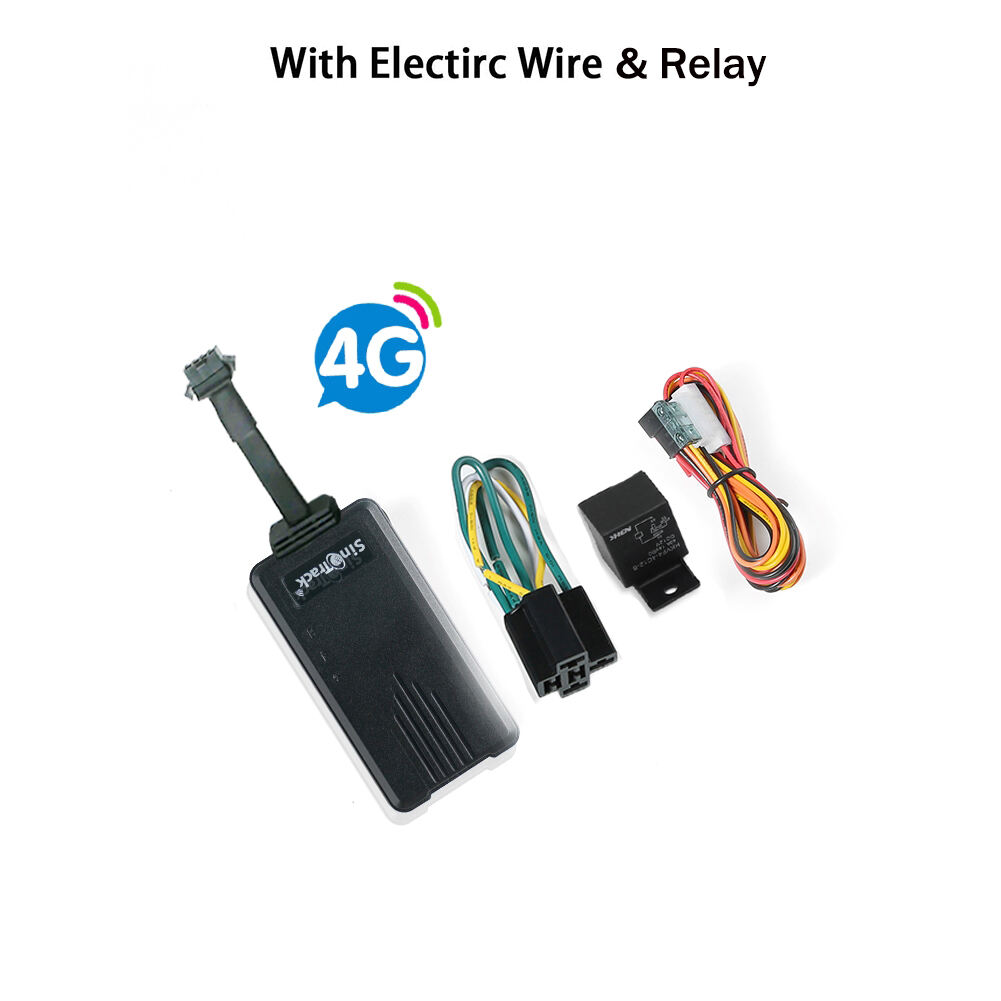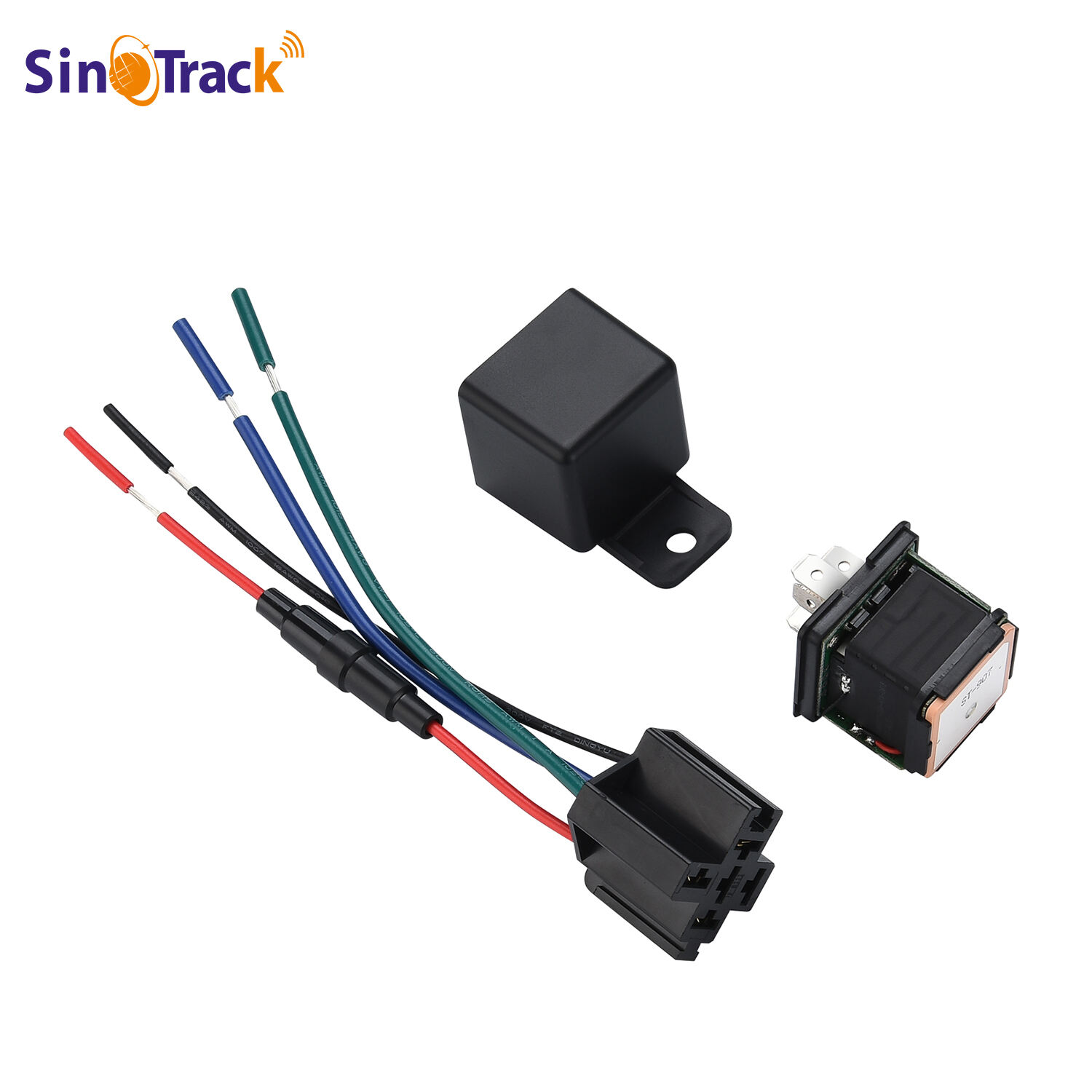Transform Your Fleet Management with Advanced GPS Technology
The transportation industry has witnessed a revolutionary transformation with the integration of car GPS tracker systems. Fleet owners across the globe are discovering how these sophisticated devices can streamline operations, enhance security, and dramatically improve their bottom line. Modern GPS tracking solutions offer unprecedented visibility into fleet operations, enabling businesses to make data-driven decisions that optimize performance and reduce operational costs.
Today's car GPS tracker technology goes far beyond simple location monitoring. These advanced systems provide real-time insights into vehicle health, driver behavior, fuel consumption, and route efficiency. For fleet owners managing multiple vehicles, this wealth of information has become indispensable for maintaining competitive advantage in an increasingly demanding market.
Core Features and Capabilities of Modern Fleet Tracking Systems
Real-Time Location Monitoring and Route Optimization
Advanced car GPS tracker systems provide instant visibility of every vehicle in your fleet. Fleet managers can access live location data through user-friendly dashboards, enabling them to monitor vehicle movements, identify delays, and respond promptly to customer inquiries about delivery status. The system's route optimization capabilities help determine the most efficient paths, considering factors like traffic conditions, road works, and delivery schedules.
These tracking solutions also maintain detailed historical data, allowing managers to analyze past routes and identify patterns that can improve future planning. By optimizing routes, businesses can significantly reduce fuel consumption, decrease vehicle wear and tear, and improve delivery times.
Vehicle Health Monitoring and Maintenance Management
Modern car GPS tracker devices integrate seamlessly with vehicle diagnostic systems, providing real-time information about vehicle health. This includes engine performance metrics, fuel efficiency data, and early warning signs of potential mechanical issues. Fleet owners can schedule preventive maintenance based on actual vehicle usage rather than arbitrary timeframes, reducing unexpected breakdowns and extending vehicle lifespan.
The system can automatically alert managers when vehicles require service, ensuring maintenance schedules are never overlooked. This proactive approach to vehicle maintenance helps prevent costly repairs and minimizes vehicle downtime, ultimately contributing to improved fleet efficiency and reduced operational costs.
Enhanced Security and Risk Management Solutions
Asset Protection and Theft Prevention
Installing a car GPS tracker in each fleet vehicle provides an essential layer of security against theft and unauthorized use. These devices offer geofencing capabilities, allowing fleet managers to establish virtual boundaries and receive instant alerts when vehicles deviate from designated areas. In the event of theft, real-time tracking enables quick vehicle recovery, minimizing potential losses and insurance claims.
Advanced tracking systems also include engine immobilization features, enabling remote vehicle shutdown in emergency situations. This capability proves invaluable for preventing theft and unauthorized vehicle use, protecting both the vehicle and any valuable cargo it may be carrying.
Driver Safety and Behavior Monitoring
Modern GPS tracking solutions incorporate sophisticated driver behavior monitoring features. These systems track and analyze various aspects of driving performance, including speed, harsh braking, rapid acceleration, and cornering behavior. This data helps fleet managers identify risky driving patterns and implement targeted training programs to improve safety standards.
By promoting safer driving habits, businesses can reduce accident rates, lower insurance premiums, and protect their reputation. The system's ability to generate detailed driver performance reports also supports fair and objective performance evaluations, encouraging a culture of responsible driving across the fleet.

Cost Optimization and Operational Efficiency
Fuel Management and Consumption Analysis
A car GPS tracker system provides detailed insights into fuel consumption patterns across the fleet. By monitoring idle time, route efficiency, and driving behavior, managers can identify opportunities to reduce fuel costs. The system generates comprehensive reports that highlight excessive fuel consumption, enabling fleet owners to implement targeted improvements.
Real-time monitoring also helps detect fuel theft or unauthorized vehicle use, while route optimization features ensure vehicles take the most fuel-efficient paths to their destinations. These capabilities typically result in significant fuel cost savings, often ranging from 10% to 30%.
Administrative Efficiency and Compliance Management
GPS tracking solutions streamline fleet administration by automating many routine tasks. The system maintains detailed digital records of vehicle usage, maintenance history, and driver activities, significantly reducing paperwork and administrative overhead. This digital documentation also simplifies compliance with regulatory requirements and helps prepare for audits.
Automated reporting features provide instant access to key performance indicators, enabling managers to make informed decisions quickly. The system can generate custom reports for different stakeholders, from operational teams to senior management, ensuring everyone has the information they need to perform effectively.
Frequently Asked Questions
How does a car GPS tracker improve fleet security?
A car GPS tracker enhances fleet security through real-time location monitoring, geofencing alerts, and remote immobilization capabilities. These features help prevent theft, enable quick recovery of stolen vehicles, and protect against unauthorized use, significantly reducing security-related risks and losses.
What ROI can fleet owners expect from GPS tracking implementation?
Fleet owners typically see return on investment within 3-6 months of implementing GPS tracking solutions. The ROI comes from reduced fuel costs, improved operational efficiency, lower maintenance expenses, reduced insurance premiums, and enhanced resource utilization. Many businesses report overall cost savings of 15-30% after full implementation.
How does GPS tracking support environmental sustainability?
GPS tracking supports environmental sustainability by optimizing routes to reduce fuel consumption, minimizing idle time, and promoting eco-friendly driving behaviors. The system's maintenance monitoring features also help keep vehicles operating at peak efficiency, reducing emissions and environmental impact.

